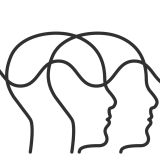In this article:
What is a Mental Health Counseling Degree?
A mental health counseling degree trains students to help individuals manage and overcome emotional, psychological, and behavioral issues. It focuses on teaching future counselors how to support people dealing with challenges such as anxiety, depression, trauma, stress, and relationship problems. The goal is to prepare graduates to guide clients toward healthier thinking patterns and coping strategies.
The program includes both academic coursework and hands-on training. Students study topics like counseling theories, human development, ethics, and cultural competency. They also complete supervised clinical experiences, where they apply their skills in real-life settings under the guidance of licensed professionals. This combination of knowledge and practice helps ensure that graduates are ready for the demands of professional counseling.
Program Options
Students interested in becoming licensed counselors can pursue several mental health counseling degree programs, each offering different levels of education and career readiness:
- Bachelor’s Degree in Psychology or a Related Field: While not sufficient for licensure, a degree in psychology, human development, or a related area provides foundational knowledge and is typically required for admission to graduate counseling programs.
- Master’s Degree in Mental Health Counseling: This is the standard degree for those seeking to become licensed professional counselors. It includes coursework in counseling techniques, ethics, and diagnosis, along with extensive supervised clinical experience.
- Doctoral Degree in Counselor Education or Counseling Psychology (PhD or PsyD): For those interested in advanced clinical practice, supervision, research, or teaching at the college level, a doctoral degree offers deeper specialization and leadership opportunities in the counseling field.
Skills You’ll Learn
A mental health counseling degree equips students with the essential skills needed to support clients facing emotional and psychological challenges. Here are some key skills developed during the program:
- Active Listening and Communication: Students learn to listen with empathy and communicate effectively to build trust and understanding with clients.
- Assessment and Diagnosis: The program teaches how to evaluate mental health conditions, identify symptoms, and use diagnostic tools to create accurate treatment plans.
- Therapeutic Techniques: Students gain experience with evidence-based counseling approaches such as cognitive-behavioral therapy (CBT), person-centered therapy, and crisis intervention.
- Ethical and Legal Competence: Training emphasizes professional ethics, confidentiality, and compliance with legal standards to protect client welfare.
- Cultural Sensitivity: Students develop the ability to work respectfully with individuals from diverse backgrounds and adapt their approach to different cultural and social contexts.
- Case Management and Documentation: Skills in maintaining accurate records, developing treatment goals, and coordinating care with other professionals are emphasized for effective client support.
- Self-Awareness and Reflective Practice: Counselors are encouraged to understand their own values and biases to ensure they provide compassionate and unbiased care.
What Can You Do with a Mental Health Counseling Degree?
A mental health counseling degree opens the door to various career opportunities focused on helping individuals cope with emotional, psychological, and behavioral challenges. Here are some potential career options:
- Mental Health Counselor: This is the most direct role, involving individual or group therapy to help clients manage anxiety, depression, trauma, grief, and other mental health challenges.
- Mental Health Social Worker: Works with clients in various settings to provide therapy, support, and resources for mental health issues. Clinical social workers often focus on connecting clients with community resources and services.
- Behavioral Health Counselor: Working in clinics or healthcare systems, these professionals support treatment planning and behavioral interventions as part of a larger care team.
- Rehabilitation Counselor: These counselors help individuals with physical, mental, or emotional disabilities achieve personal and career goals, often within vocational or healthcare settings.
- Drug and Alcohol Counselor: These professionals work with individuals struggling with addiction, providing therapy, relapse prevention strategies, and support for recovery.
- School Counselor (with additional certification): With the right credentials, graduates can support students in academic, social, and emotional development within educational settings.
- Marriage and Family Therapist: Focuses on helping couples and families improve their relationships and resolve conflicts. This role requires specialized training in family dynamics and relationship counseling.
- Crisis Intervention Specialist: Often based in hospitals, hotlines, or community agencies, crisis counselors provide immediate support to individuals facing urgent mental health issues or traumatic events.

